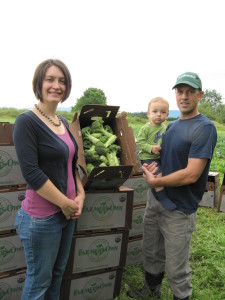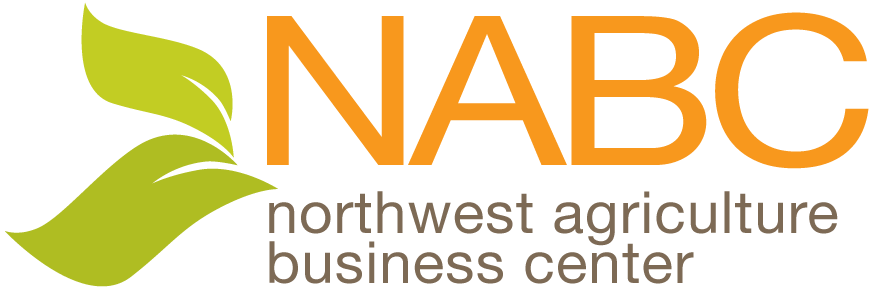Red Mountain Organics — A New Farming Enterprise
 Established in 2011, Red Mountain Organics currently farms 28 acres, specializing in growing certified organic medicinal herbs to supply regional and national processors of natural remedies. The farm also grows certified organic broccoli and cabbage to supply regional wholesale distributors.
Established in 2011, Red Mountain Organics currently farms 28 acres, specializing in growing certified organic medicinal herbs to supply regional and national processors of natural remedies. The farm also grows certified organic broccoli and cabbage to supply regional wholesale distributors.
Clay Godbolt, owner of Red Mountain Organics began his exploration of horticulture working at Lyon’s Arboretum and the National Tropical Botanical Gardens in Hawaii where he also achieved his certification as an arborist from the International Society of Arboriculture. This great adventure provided a mix of experience in understanding the nature of native grasses, shrubs, and trees, as well as developing horticultural and operational management skills.
Coming back to the Pacific Northwest, Clay went to work for Flora, Inc., progressing to the position of Assistant Farm Manager. At Flora, Clay had greenhouse and field production responsibilities for a diverse selection of certified organic medicinal herbs. These responsibilities included propagation, instalation and maintenance of irrigation systems, creation of field plans, and management of equipment and staffing for Flora’s thirty acres of farmland.
In an organizational restructure, Flora shut down its farm in 2011, while maintaining its farm operation in British Columbia. So Clay and his wife, Michelle, determined they should start a farm of their own. Clay would manage the farm while Michelle, who has previous banking and accounting experience, would handle the numbers. Red Mountain Organics started the farm in 2012 on land leased from Flora. However, after the sale of Flora’s farm property, Clay had to work hard to cobble together four different land leases in order to continue his farm operations.
Access to land has been a critical issue for Red Mountain Organics. Securing good working farmland that can also be certified organic is a tall order in Whatcom County. “Having some history with local growers has been helpful” Clay says. “Still, in the long run, the short-term nature of several of our leases makes it problematic to invest the time and resources to bring in water access and build the health of the soil if I don’t have the guarantee of being on the land longer.”
Capital expenses and access to the capital necessary to purchase equipment and establish infrastructure is another challenge beginning farmers face. “It takes money to make money. We were fortunate to have some farm assets at start-up, but it’s still really scary. There’s really not much room for even small failures.”
Clay conducted important up-front preparation prior to the start up of his farm, taking advantage of several of the programs available to new Whatcom County farmers. “I took the WSU Whatcom Extension’s Cultivating Success classes which were really helpful. I also participated in Sustainable Connection’s Food to Bank On (link) program. This program provided a really valuable curriculum and paired me with Mike Finger, owner of Cedarville Farm as a mentor. It also provided me an opportunity to farm a half-acre on Boxx Berry Farm. Boxx Berry Farm does a fair amount of mechanized production and Mike Boxx was a wonderful resource. Pete Dykstra, owner of Hopewell Farm has been another mentor who has given generously of his time ad hoc to help me think through a lot of issues and daily challenges.”
“NABC provided another strong mentoring relationship and provided me with a crash course in financial and business planning skills. Our goal was to raise enough capital to purchase needed equipment and meet the farm’s cash flow needs into the future. Jeff Voltz from NABC helped us to create three-year financial projections, market and business plans, and to consider what lenders would require. He even contacted lenders on our behalf and attended the meeting with the bank. And just like Mike Finger, Mike Boxx, and Pete Dykstra, Jeff has been accessible to help us think through business management issues.”
